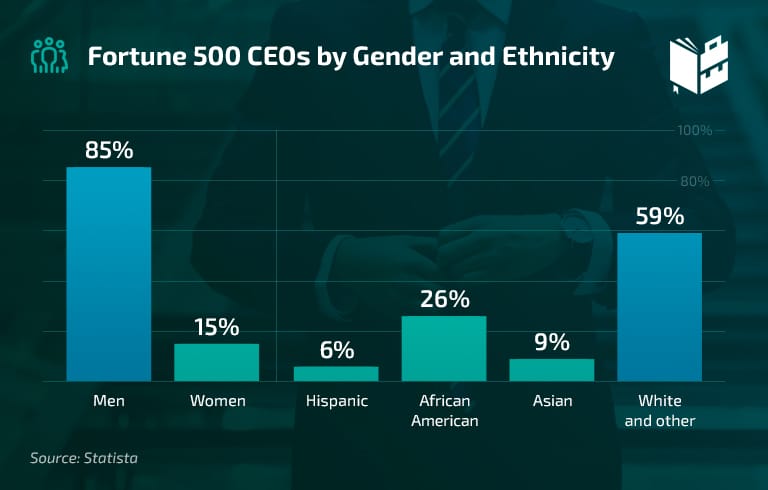The Benefits of Diversity in the Workplace: Statistics and Insights
Diversity in the workplace is more than just a buzzword; it is a crucial aspect of building a successful and inclusive organization. In today’s globalized world, businesses are recognizing the immense benefits that come with embracing diversity. In this article, we will explore the statistics and insights that highlight the advantages of diversity in the workplace.
Improved Problem Solving and Innovation
Research consistently shows that diverse teams outperform homogeneous ones when it comes to problem-solving and innovation. A study conducted by McKinsey & Company revealed that companies with diverse executive teams were 33% more likely to achieve above-average profitability compared to their industry counterparts. This statistic alone emphasizes the positive impact of diversity on a company’s bottom line.
Enhanced Creativity and Different Perspectives
When individuals from different backgrounds, cultures, and experiences come together, it creates a melting pot of ideas and perspectives. This diversity of thought fuels creativity and innovation within an organization. According to a survey conducted by Forbes, 85% of respondents agreed that diversity is crucial for fostering innovation in the workplace.
Increased Employee Engagement and Retention
Employees who feel valued and included are more likely to be engaged and committed to their work. A study by Deloitte found that inclusive organizations are twice as likely to meet or exceed financial targets, three times as likely to be high-performing, and six times more likely to be innovative. These statistics highlight the importance of creating an inclusive work environment that embraces diversity.
Broader Talent Pool and Recruitment
Companies that prioritize diversity in their workforce have a competitive advantage when it comes to attracting top talent. A diverse and inclusive workplace appeals to a broader range of candidates, resulting in a larger talent pool to choose from. According to Glassdoor, 67% of job seekers consider diversity an important factor when evaluating potential employers.
Improved Decision Making
Diverse teams bring together individuals with different skills, perspectives, and experiences. This diversity of viewpoints leads to more robust and well-rounded decision-making processes. A study published in the Harvard Business Review found that diverse teams make better decisions 87% of the time compared to individuals working alone.
Enhanced Company Reputation
Companies that prioritize diversity and inclusion not only benefit internally but also enjoy a positive reputation externally. A strong commitment to diversity can attract customers who value inclusivity. According to a survey by Accenture, 42% of consumers would switch their brand choices to support a company that is committed to diversity and inclusion.

The statistics and insights presented in this article demonstrate the tangible benefits of diversity in the workplace. From improved problem-solving and innovation to enhanced employee engagement and broader talent pools, diversity plays a crucial role in the success of organizations. Embracing diversity is not only the right thing to do but also a strategic business decision that can lead to long-term growth and prosperity.
Frequently Asked Questions – Benefits of Diversity in the Workplace Statistics
1. Why is diversity important in the workplace?
Diversity in the workplace brings together people with different backgrounds, experiences, and perspectives, leading to increased creativity, innovation, and problem-solving abilities.
2. How does diversity contribute to employee engagement?
A diverse workforce fosters a sense of belonging and inclusivity, which improves employee engagement, morale, and overall job satisfaction.
3. What are the benefits of diversity in decision-making processes?
Diverse teams make better decisions by considering a wider range of perspectives, leading to more effective problem-solving and improved outcomes.
4. How does diversity impact business performance?
Research shows that companies with diverse workforces tend to outperform their competitors, demonstrating higher financial returns and increased innovation.
5. Can diversity in the workplace enhance customer satisfaction?
Having a diverse workforce allows businesses to better understand and cater to the needs of a diverse customer base, leading to improved customer satisfaction and loyalty.
6. What role does diversity play in attracting top talent?
Companies that prioritize diversity and inclusion are more likely to attract and retain top talent, as individuals are drawn to organizations that value and promote diversity.
7. Does diversity in the workplace improve problem-solving abilities?
Yes, diverse teams bring different perspectives and approaches to problem-solving, leading to more creative and effective solutions.
8. How can diversity in the workplace enhance creativity and innovation?
When individuals with diverse backgrounds and experiences collaborate, they bring unique ideas and insights, fostering a culture of creativity and innovation within the organization.
9. Are there any legal benefits to having a diverse workforce?
Having a diverse workforce helps organizations comply with equal opportunity employment laws and regulations, reducing the risk of discrimination lawsuits.
10. How can organizations promote diversity and inclusion in the workplace?
Organizations can promote diversity and inclusion by implementing inclusive hiring practices, providing diversity training, fostering an inclusive culture, and creating employee resource groups.




